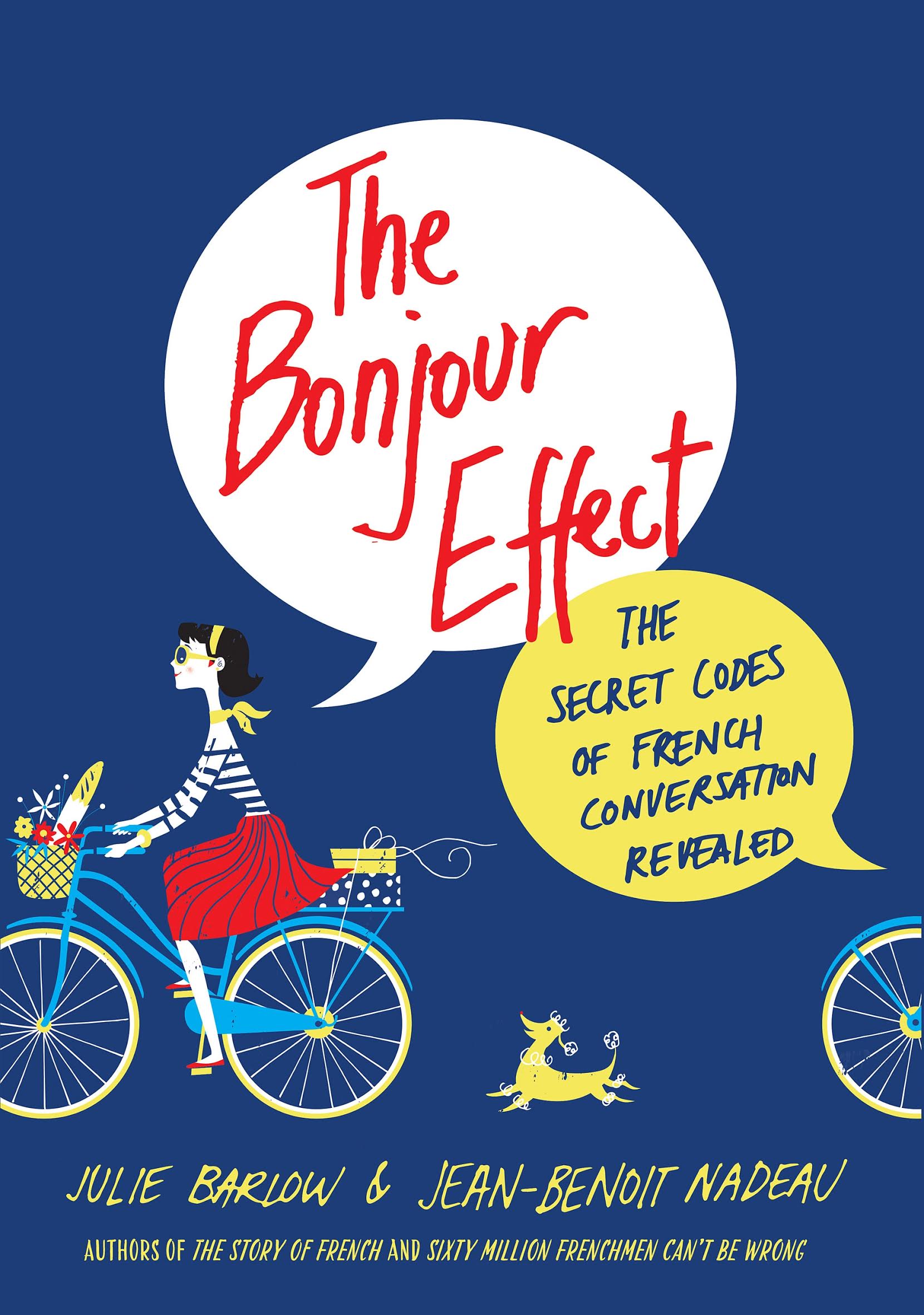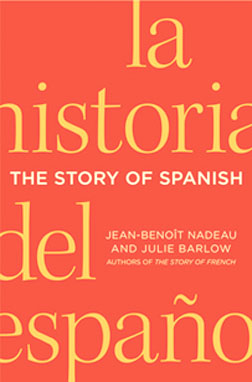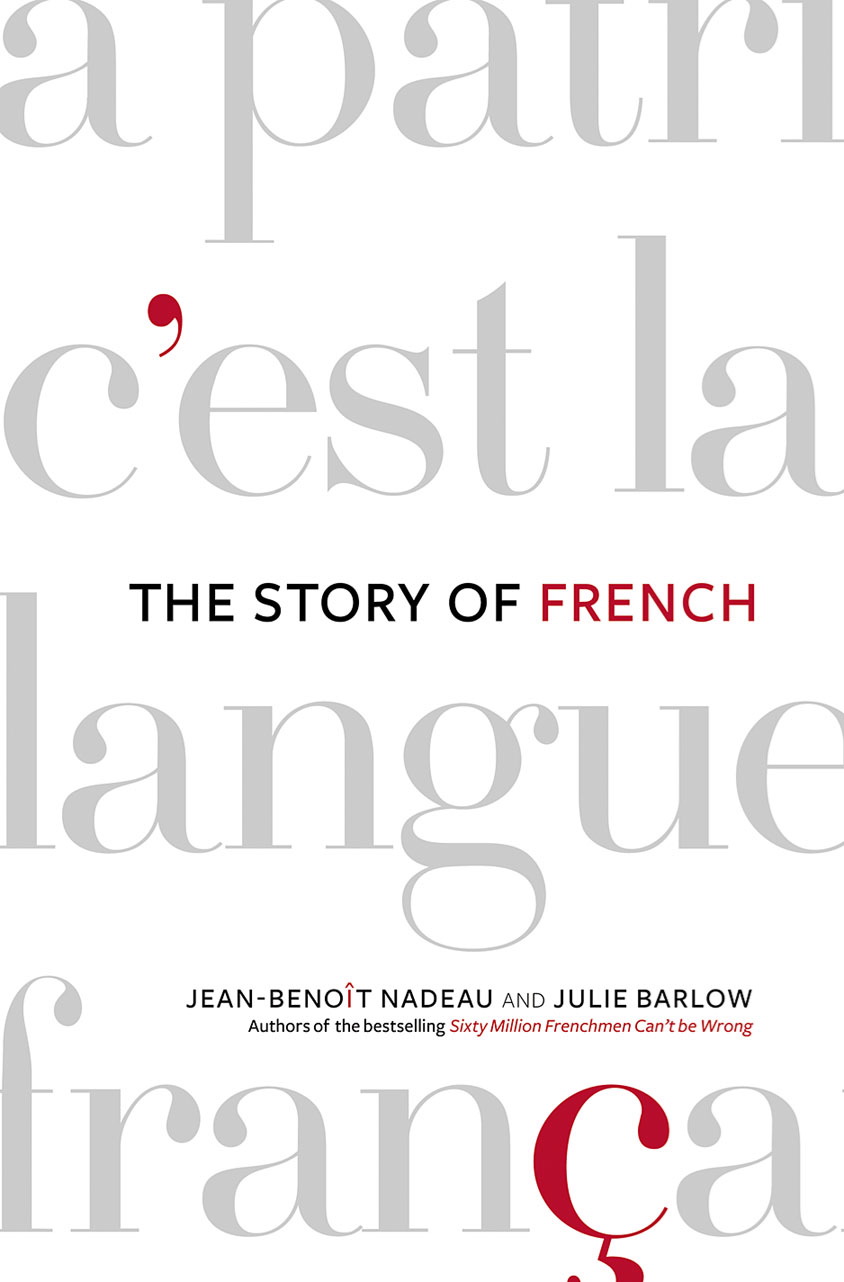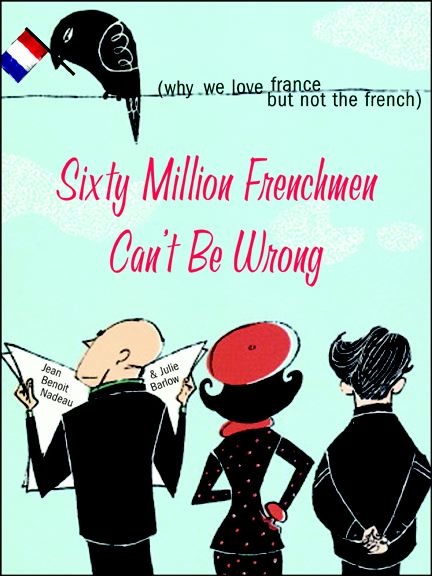Going Solo: Everything You Need to Start Your Business and Succeed as Your Own Boss

Dreaming of working for yourself as a writer, graphic designer, real-estate agent, farmer, actor, lawyer, dog groomer? Whatever type of business you want to start, Going Solo is a “one-stop shop” with everything you need to become your own boss.
Should you incorporate? What expenses can you deduct? Do you need a website? What about insurance? How do you negotiate a contract? How do you handle clients who don’t pay? How do you afford holidays? Find the answers to all of your questions about starting and running your own business in Going Solo, the essential toolkit for self-employed Canadians and Americans.
The book will be published in September 2023 in two distinct editions, for Canada and the US.
Drawing on three decades of experience as self-employed creators, authors Julie Barlow and Jean-Benoît Nadeau give you the practical information you need to succeed as your own boss.
You’ll learn to:
- Develop ideas other people will want to steal
- Win all your negotiations
- Earn more by working less
- Keep difficult clients happy
- Make money charging taxes
But you’ll also learn that:
- The client is NOT always right
- No one needs a 250-page business plan to start
- You can say ‘no’
- Verbal contracts count too
Whether it’s advice on invoicing, managing relationships with bankers or building advertising campaigns, Going Solo delivers the goods in a clear, comprehensive, and accessible package –with no BS!
The Bonjour Effect

Most of what we know about the French comes from what the French say about themselves. Yet how are we supposed to understand a people who say non when they mean yes, who never say “I don’t know”, even when they really don’t, and who argue at the drop of a hat?
Jean-Benoît Nadeau and Julie Barlow spent a decade traveling back and forth to Paris and living there. In The Bonjour Effect they chronicle the lessons they learned after returning to France to live, for a year, with their twin daughters. In a book as fizzy as a bottle of French champagne, they reveal the most important lesson of all: the French don’t communicate, they converse.
To understand and speak French well, one must understand that French conversation runs on a set of rules that go to the heart of French culture. Why do the French like talking about “the decline of France”? Why does broaching a subject like money end discussions? Why do the French become so aroused debating the merits and qualities of their own language?
Through encounters with school principals, city hall civil servants, gas company employees, old friends and business acquaintances, Julie and Jean-Benoît explain why, culturally and historically, conversation with the French is not about communicating or being nice. It’s about being interesting.
After reading The Bonjour Effect, even readers with a modicum of French language ability will be able to hold their own the next time they step into a crowded bus, a beloved boulangerie, or a bistro on the Left Bank.
Praise for The Bonjour Effect
“The authors clearly had a ball researching the book, and their glee is infectious. The writing is as light as it is substantive, and if that sounds like a contradiction, I would refer you to a soufflé”— New York Times Book Review
“The authors of The Bonjour Effect clue us in on what you need to know when speaking French with the locals in Paris – things that language classes don’t always explain.” —Travel with Rick Steves
“…fascinating and delightful…” — The Times Literary Supplement
“Copies should be made available at every border crossing….a fascinating, even valuable book, full of surprises.”— The Daily Mail
“A lively and informative description of the country’s cultural habits and social codes. First-time travellers to France will find useful tips, and for most North Americans this is a good introduction to the long history and complex culture of the country.” — The Globe and Mail
“..a riveting study… French conversation can be terrifying, and now I know why.”— The Irish Independent
“Engaging and often funny, filled with examples drawn from the authors’ experiences, this is a guide to the most essential of French arts: conversation.” —Ann Mah, author of Mastering the Art of French Eating
“Whether “bonjour” is the beginning or the end of your French vocabulary, you’ll find something fascinating, surprising, or just plain fou on nearly every page. Before reading this invaluable codebook to French language and culture, I feared that I’d somehow insulted every French waiter, shopkeeper, and clerk between Paris and Nice. Now I know I did, but at least I know why!” — William Alexander, author of Flirting with French
“The Bonjour Effect is an indispensable linguistic roadmap. A highly enjoyable romp through French culture and its language, written with wit and aplomb.” — Debra Ollivier, author Entre Nous: A Woman’s Guide to Finding Her Inner French
“…the authors deliver keen, reflective observations…a very compelling explanation of French talk.” — The French Review, The American Association of Teachers of French
“…a hugely engaging read, whether you speak French or not, and … a must-have for anyone who frequents L’Hexagone on a regular basis.” — France Today
“…an inspiring and fascinating read that will help you understand why the French act and speak the way they do.” — Living in France
“If you intend on reading only one book prior to your visit to France, make it The Bonjour Effect.” — The New York Public Library
“I’ll never say “bonjour” again without thinking of The Bonjour Effect.”— adrianleeds.com
“…a little jewel.” — Association France Grande-Bretange
“Francophiles, and every would-be tourist will be well served by the detail of the Bonjour Effect.” —Winesworld
“…both serious and funny. You can’t help smiling when you read it…) ” — French Morning
“Julie Barlow and Jean-Benoît Nadeau have an impressive arsenal of metaphors when it comes to illustrating the subtleties of French conversation.” — France-Amérique
“… a brilliant explanation of aspects of French life and culture that for me, had got ‘lost in translation.’” — Oxford University Society
“..you will find yourself devouring this book and shouting ah!”— Montreal Review of Books
“The Bonjour Effect is a comprehensive look at how to navigate those often-tricky waters of cultural communication en français.” —eatlivetravelwrite.com
“… a highly entertaining look at France and the French as they are now…. fundamentally a guide to human behaviour — ours as well as theirs.” — Tuam Herald
“I love this book!” — Michael Patrick Shields, Michigan’s Big Show
“Very funny.” — Rudy Maxa’s World with the Careys
“This book confirms what the English have suspected for many years, that French is not so much a language as a dance, a ritual, a code to be cracked. The Bonjour Effect cracks it.” — David Boyle
“If you follow Barlow and Nadeau’s formulas for conversation … you will come away from your trip with a very positive feeling for the French language culture.” — 4-Traders
“No matter your level of proficiency with the French language, you will read, and enjoy and be reminded of why you will want to return immediately to the City of Light.” — thesimplyluxuriouslife.com
“…part memoir, part linguistic guidebook, and part “French Conversation for Dummies”….an extremely accessible book that is as informative as it is entertaining.”— Cosmicurbanite.com
“…a great insight into France”— Chocolate and Croissants
“The French can be a baffling lot but The Bonjour Effect goes a long way to illuminating their mysterious ways.” —Belle Epoque 1899.com
“It’s an engaging and funny exploration of the French codes of communicating, often very puzzling to foreigners! — Traveirleland Magazine.
“In the future, if someone asks me what they need to know before traveling to France, I’m going to hand them a copy of The Bonjour Effect.” — parisonthebrain.com
” Informative, entertaining, and indispensable.” — michellerichmond.com
” …a sparkling read that’s as delightfully fascinating as it is hugely practical to visitors to France.” — basbleu.com
 |
 |
 |
Charging Ahead: Hydro-Quebec and the Future of Electricity
 On the 75th anniversary of its creation, Hydro-Québec has become the second-biggest hydroelectricity system in the world after China Yangtze Power. It is the only power system in North America with its own research centre, one that puts it on the cutting edge of technological developments in the field of electricity. Thanks to Hydro-Québec’s energy sources, which are considered 99.8 percent renewable, few power systems in the world outside of Norway and Iceland can claim to be “greener.” And no other system on the continent has lower rates. Hydro-Québec’s reputation attracts delegations from China, Mexico, the U.S., Africa and Europe who flock to its generating stations, control centres and laboratories to discover new research and technology coming from Quebec.
On the 75th anniversary of its creation, Hydro-Québec has become the second-biggest hydroelectricity system in the world after China Yangtze Power. It is the only power system in North America with its own research centre, one that puts it on the cutting edge of technological developments in the field of electricity. Thanks to Hydro-Québec’s energy sources, which are considered 99.8 percent renewable, few power systems in the world outside of Norway and Iceland can claim to be “greener.” And no other system on the continent has lower rates. Hydro-Québec’s reputation attracts delegations from China, Mexico, the U.S., Africa and Europe who flock to its generating stations, control centres and laboratories to discover new research and technology coming from Quebec.So why is Hydro-Quebec one of those companies that everyone loves to hate?
It’s one of the questions award-winning author-journalists Jean-Benoît Nadeau and Julie Barlow explain in Charging Ahead: Hydro-Quebec and the Future of Electricity (Baraka Books). The authors explore Quebec’s energy supplier from its genesis, explaining how it became one of the least expensive and greenest energy producers in the world, producing electricity with a stunning renewable energy rate of 99.8 percent, while remaining extremely profitable.
Yet their eyes are mainly on the future as they explain how Hydro-Quebec’s audacious choices gave Quebec a two-generation advance over California and Ontario in producing renewable energy. Through dozens of interviews and visits, they explain how Hydro-Québec can accelerate the energy transition in America’s North East and show readers why the 21st century is truly Quebec’s moment.
But between now and Hydro-Québec’s 100th anniversary, the challenges for Hydro-Quebec will be vast. As our habits and expectations change radically everything will be on the table, from solar panels to rates, from remote heating control to underground power lines, and from the environment to relations with the indigenous peoples.
“A thorough study”
Radio-Canada
“So many surprises and interesting things in this book”
Sonali Karnick, CBC’s All in a Weekend
The Story of Spanish
 (St. Martin’s Press, 2013)
(St. Martin’s Press, 2013)Just how did a dialect spoken by a handful of shepherds in Northern Spain become the world’s second most spoken language, the common tongue of 400 million people in 22 countries, and the unofficial second language of the United States?
The Story of Spanish is the passionate and intriguing chronicle of a vibrant language that thrived through conquests and setbacks to become the tongue of Pedro Almódovar, Gabriel García Márquez, of tango and ball room dancing, of millions of Americans, and of hundreds of millions of people throughout the world.
In 35 chapters full of surprises, combining personal anecdote, reflections and deep research – Nadeau and Barlow have written the first full biography of the Spanish language.
The Story of Spanish shows there is much more to Spanish than tacos, flamenco and bullfighting. The ancient Phoenicians gave Spain its original name, which means “The Land of the Rabbits.” Over the course of its history, Spanish picked up bits of Germanic culture, a lot of Arabic and even some French.
Through characters like Queen Isabella, Christopher Columbus, Cervantes and Goya, Story of Spanish shows how Spain’s Golden Age, the Mexican Miracle and the Latin American Boom shaped the destiny of the language, as did somber episodes like the Spanish Inquisition, the expulsion of Spain’s Jews, the destruction of native cultures, the political instability in Latin America and the dictatorship of Franco.
Finally, it explains how the United States developed its Hispanic personality from the time of the Spanish conquistadors, to Latin American immigration and telenovelas.
Get your copy from Amazon OR Barnes & Noble
Praise for The Story of Spanish
“Hats Off!”
The Economist
“… a rich history of the language.Nadeau and Barlow do an excellent job of transforming it into
an accessible and lively narrative.” The LA Times
“Part linguistic primer, part cultural history, “The Story of Spanish” zips along crisply.”
The Wall Street Journal
“Nadeau and Barlow present a multi-layered history of the language.”
Maclean’s
“The Story of Spanish…explores the rich history of a great language.”
The Montreal Gazette
“Part anthropological study, part travelogue, this volume is an entirely compelling compendium.”
Booklist
“…a charming biography of the world’s least appreciated major language.”
Donald Morrison, former editor of TIME magazine’s European edition
” A useful overview, strong on sociolinguistics..” Kirkus
“Their compelling book combines history, research, anecdotes, reflections, travelogue — and trivia.” Examiner.com
“Recently released, this book has a special approach and the key lies in its title: The Story of Spanish. Written as a “story” not as a history textbook it tells how the Spanish language evolved chronologically.”
Speakinglatino.com
“Julie Barlow and Jean-Benoît Nadeau follow up their exploration of French with The Story of Spanish.”
The Montreal Gazette
“A book written with a great love and a great respect for the Spanish language and Hispanic cultures.”
Gerardo Piña-Rosales,Director of the Academia Norteamericana de la Lengua Española
“Mixing anecdote, reflection and research, they introduce readers to a language spoken by 500 million people in 22 countries.”
El Tiempo Latino
“Nadeau and Barlow have done it again […] Worthy of TV’s Amazing Race, they present an entertaining […] journey through 3000 years.”
Winnipeg Free Press
“…interesting look into a subject that is at once familiar but rarely examined in this manner.”
Between the Covers
“This book is a trove of information.”
Bilinguish
“I believe The Story of Spanish can contribute to changing common perceptions of Spanish as the language of a struggling minority…. In my opinion, the fact that this book is being written in English is a great advantage…Because it is being written in English, The Story of Spanish has the potential to reach beyond [the Spanish-speaking] market.”
Alejandra de la Paz
Minister of Cultural and Educational Affairs
Embassy of Mexico in the United States
Get your copy from Amazon OR Barnes & Noble
The Story of French
 (Knopf Canada, St. Martin’s Press NY, Anova Books UK, 2006)
(Knopf Canada, St. Martin’s Press NY, Anova Books UK, 2006)Imagine a language that is watched over by a group of forty “Immortals” wearing Napoleonic hats and carrying swords. Its rules are so complex that few people ever completely master it. It’s status as the world’s lingua franca has been declining for two centuries and its use in global institutions is waning. Its speakers are so insecure they pass laws banning other languages while they spend millions of taxpayers’ dollars making sure their own gets used in literature, music and film.
Now imagine a language that is second only to English for the number of countries where it is spoken officially, a language that is the official tongue of two G8 countries and three European nations— a language with two million teachers and 100 million students worldwide, and whose number of speakers has tripled in the last fifty years, reaching 220 million, in 56 countries.
This paradoxical picture is the backdrop for The Story of French. In a narrative that spans from Charlemagne to the Cirque du Soleil, Canadian authors Jean-Benoît Nadeau and Julie Barlow unravel the mysteries of a language that has maintained its global influence despite the rise of English.
Through this colourful history, Nadeau and Barlow show how French acquired its own peculiar culture – one that includes intense politicization of language, rigid grammar rules, and a sense of cultural exceptionalism. They explain how that language culture spread among francophones the world over, yet why it remains curiously centered on Paris. As entertaining as it is informative, The Story of French challenges certainties about French and shows why French is still the world’s other global language.
Get your copy from Amazon OR Barnes & Noble
Praise for The Story of French
“…a well-told, highly accessible history of the French language that leads to a spirited discussion of the prospects for French in an increasingly English-dominated world.”
The New York Times
“…clearly written, well-organized … an illuminating portrait of Gallic sensibility.”
Publishers Weekly
“…a lively and fascinating account of the history of the French language, from “the days of Charlemagne to our own time. Well-researched and rich in detail…”
The Christian Science Monitor
“…a mind altering experience… Every Canadian should read this book.”
The Montreal Gazette
“…fascinating reading for French immersion school teachers and students, and actually for everyone with a personal interest in culture and linguistics.”
The Globe and Mail
“…an excellent book on the history of the French language, stuffed with surprises, insight and humour.”— The Independent
“…provocative and counterintuitive… [a] wide-ranging and colorfully written account.”
The New York Post
“…a riveting look at the history, culture and politics of the language, both its European birthplace and around the world, including Canada.”
The Ottawa Citizen
“Exceptionally told, a celebration of the lasting influence of la [langue] française.”
The Kirkus Review
“An engaging and well-conceived book with broad appeal; highly recommended.”
Library Journal
“…chockablock with […] intriguing facts about the language and its evolution.”
Booklist
“… hums with the spirit of a novel, the heart of a travel book and the brains of an essay.”
Lawrence Hill, author of The Book of Negroes
“…a definitive analysis of French as it is spoken around the world. An in-depth, compelling, and above all affectionate look at the language of love, The Story of French is required reading for all Francophiles
Laura K. Lawless, About.com
“Dispenses with many commonly-held beliefs.”
L’actualité Magazine
“This book wears its title well. Interesting and joyful, this essay on the French language is a veritable novel. (…) We French certainly won’t help our language by becoming more insular and trying to fend off globalization.”
Frédéric Martel, Le Point
“The epic story of French, from its origins and contact with the world. (…) A positive, forward looking book.”
Sophie Larmoyer, Europe 1
“The Story of French kills off the belief that everyone in Europe spoke French once upon a time. (…) Jean-Benoît Nadeau and Julie Barlow teach us that the French language is not everything we thought it was, that it didn’t come from where we thought it did, and that it’s not heading where we imagine either. (…). An extraordinary adventure.”
Franck Ferrand, Europe 1
“A true exploit of research, an excellent book.”
L’Express, Toronto
“An instructive, passionate book. A must read.”
Planet Quebec
“A magnificent book!”
Michel Lacombe, CBC Radio
“A perfect Christmas gift…that you’ll be tempted to keep for yourself. My advice: buy two copies. It’s a fabulous story.”
La Presse, Montreal
“Thank you, cousins!”
L’Express, Paris
“Those who have announced the end of the French language can go to Hell.”
Le Droit, Ottawa
“In The Story of French, the authors take us through a funny, cheeky study of French that strangles some of our commonly held beliefs about French.”
Julien Bisson, L’express.fr
“Refreshing and well-documented (…) Jean-Benoît Nadeau and Julie Barlow have written an engaging work that reads lightly.”
ZigZag Magazine
“Fascinating.. a fresh approach to both the language and the history.”
Mary Ann Caws, Distinguished Professor of French, English, and Comparative Literature, Graduate Center City University of New York
Get your copy from Amazon OR Barnes & Noble
Sixty Million Frenchmen Can’t Be Wrong
 (Sourcebooks, 2003)
(Sourcebooks, 2003)Imagine a country where people work 35-hour weeks, take seven weeks of paid holidays a year, have the best health system, the longest life expectancy and the fifth richest economy in the world. This country is France. Now imagine a country where citizens have so little civic sense they never give to charity; a country where a quarter of the work force is employed by the government, and where people expect the State to do everything. That country is France, too.
From a distance, modern France looks like a riddle. Up close, it all makes sense. In Sixty Million Frenchmen Can’t Be Wrong, Jean-Benoît Nadeau and Julie Barlow show how the pieces of the puzzle fit together. Decrypting French ideas about land, food, privacy and language, they explain how France literally grew out of its soil. From centralization and the Napoleonic code, to elite education and street protests, the authors explain all the pieces that make up modern France.
Sixty Million Frenchmen Can’t Be Wrong takes readers on a journey through the French psyche. Roaming across France from their Paris base, the authors take readers as far as the Caribbean territory of Guadeloupe. They hike, wine and dine, visit the mosques of Paris, follow labor protests in Marseilles and talk to ordinary and extraordinary French men and women to understand what makes the French tick, and where their country is headed.
Approaching France like a pair of anthropologists, the authors use anecdotes and observations, history, political analysis and humor to explain the links between the French national character and the French state. The result is a compelling, fresh take on a country everyone thinks they understand.
Get your copy from Amazon OR Barnes & Noble
Praise for Sixty Million Frenchmen Can’t Be Wrong
“…[Sixty Million Frenchmen Can’t Be Wrong] examines the many paradoxes of France. It has an overregulated economy with high taxes and double-digit unemployment, but is also one of the world’s most productive countries. Its
people drink, smoke and indulge in high-cholesterol food with abandon, yet have far less obesity and fewer heart problems than Americans.”
The New York Times
“…finally there is a book which explains in non-romantic, lucid terms, better than anything else I have read, why the French are as they are…Sixty Million Frenchmen Can’t Be Wrong should be handed out at Calais and Charles de Gaulle airport to anyone hoping to get a grip on France and make a holiday or life work here.”
The Daily Telegraph
“…simply marvellous. Sixty Million Frenchmen will interest those readers who want to understand what makes the French mind go tickety-tock. And it will definitely help smooth anyone’s introduction to this puzzling and beautiful country.”
The Globe and Mail
“Sixty Million Frenchmen” does its job marvelously well. After reading it, you may still think the French are arrogant, aloof and high-handed, but you will know why.”
The Wall Street Journal
“… a hard-eyed and mostly affectionate survey of what makes French society tick and why outsiders, and particularly North Americans, so often misread it.” The Toronto Star
“…fascinating … will interest those readers who want to understand what makes the French mind go tickety-tock.
And it will definitely help smooth anyone’s introduction to this puzzling and beautiful country.”
The Sunday Times
“…packed with detail, and they write about the French
with affection.”
The Times
“…a must read for Francophiles and surprise hit of the year…Sixty Million Frenchmen Can’t Be Wrong [is a ] penetrating and witty enquiry by two Canadian journalists into the unique essence of being French.”
Critic’s Choice, The Daily Mail
“…a well-researched, chatty tome.”
The Montreal Gazette
“A surprising book written with a touch of humour, that combs through all the ticks and obsessions of the French.”
Le Monde.fr
“To Americans, we sure must look like a strange people.”
Libération
“It’s the story of two Canadians, who, coming out of nowhere, help us see ourselves in a different light.”
Le Figaro
“The authors can’t be wrong either!”
L’actualité
“… re-examines [France’s] clichés and paradoxes, from labour strikes to the “choreography of power” in street protests, our grandes écoles and hunger for grandeur.”
L’Express
“Nice job.”
La Presse







